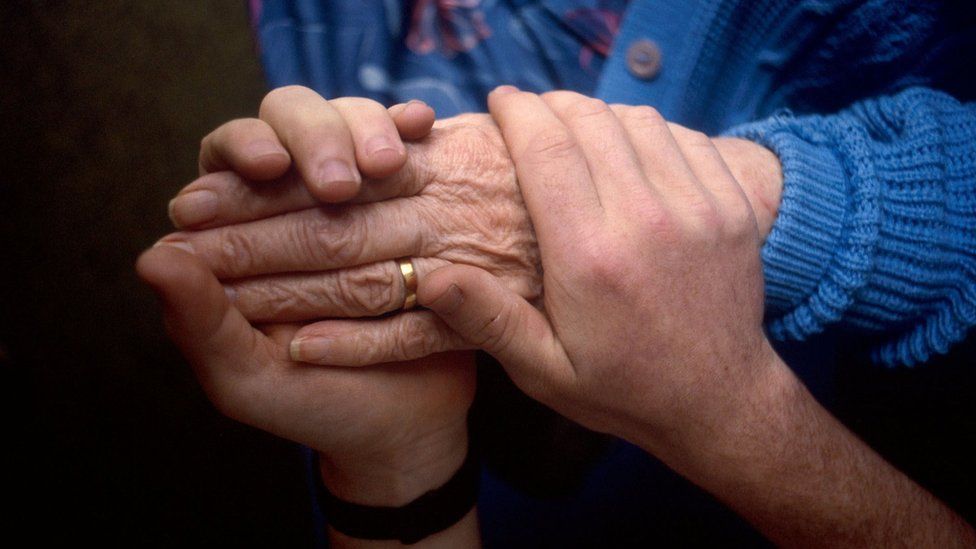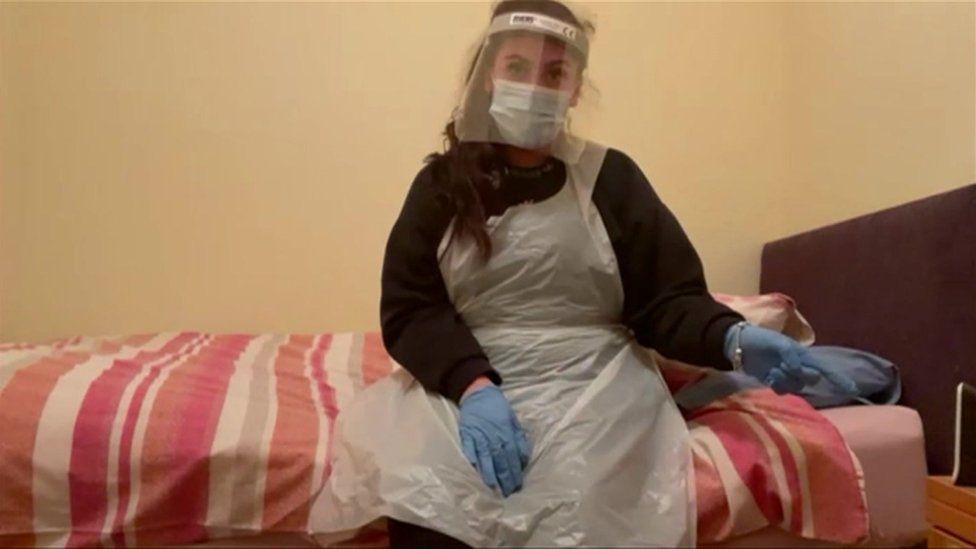Care workers lose 'sleep-in shift' court challenge

Care workers who have to sleep at their workplace in case they are needed are not entitled to the minimum wage for their whole shift, the Supreme Court has ruled.
The case was brought by Clare Tomlinson-Blake against the learning disability charity, Mencap.
If she had won, care providers feared an estimated £400m bill for backpay, which they said they could not afford.
The case sought to overturn a 2018 Court of Appeal ruling.
Her union, Unison, argued on her behalf that care staff should get the minimum wage for nightshifts even if they are asleep.
"This case was never about the money. It was about the principle of treating staff fairly," said Ms Tomlinson-Blake.
"Sleep-in shifts aren't about just being on call - it's work.
"Staff are constantly on guard to protect the most vulnerable in society. The sound of a cough in the night could mean someone's in danger."
Unison general secretary Christina McAnea said: "No-one is a winner from today's judgement.
"Everyone loses until the government intervenes to mend a broken system that relies on paying skilled staff a pittance."
Mrs Tomlinson-Blake, from Yorkshire, was paid less than £30 by Mencap for a sleep-in shift between 22:00 and 07:00.
Although she could sleep, she was expected to keep a "listening ear" out for the home's residents and provide them with support if needed during the night.
Over 16 months, she was called on six times, receiving no extra money for the first hour she was disturbed, although after that she was paid at the full day-time rate.
A second case was brought by John Shannon, a Surrey care worker whose case was heard at the same time as Mrs Tomlinson-Blake's.
His case against his former employers was also dismissed.

The Supreme Court concluded there was an exemption in national minimum wage legislation which applied to sleep-ins.
In the court's written ruling, Lady Arden said that "sleep-in workers... are not doing time work for the purposes of the national minimum wage if they are not awake".
- In 2017 the Employment Tribunal found Mrs Tomlinson-Blake used her "listening ear" and experience to know when she was needed - so she was "working" even when asleep
- This meant she was entitled to an hourly minimum wage, amounting to £60 per shift
- But in 2018, the Court of Appeal ruled that "sleepers-in" were to be characterised as "available for work... rather than actually working"
- This meant "the only time that counts for national minimum wage purposes is time when the worker is required to be awake for the purposes of working".
Edel Harris, chief executive of Mencap, said: "Support workers within Mencap and across the sector do an exceptional job.
"They are dedicated in their care for people with a learning disability and should be paid more."
But she added: "It is no exaggeration to say that if the ruling had been different, it would have severely impacted on a sector which is already underfunded and stretched to breaking point.
"Some providers would have gone bust and, ultimately, the people who rely on care would have suffered."
Matthew Wort, a partner at Anthony Collins Solicitors which represented Care England, the body that represents independent care providers and intervened in the Supreme Court case, said: "Today's judgement puts an end to many years of uncertainty.
"It should be seen as a line in the sand, with the focus now on ensuring changes are made in how workers are remunerated to ensure appropriate pay for time asleep."

March 19, 2021 at 11:44PM
By Alison Holt
https://www.bbc.co.uk/news/uk-56451721
Labels: BBC News

0 Comments:
Post a Comment
Subscribe to Post Comments [Atom]
<< Home